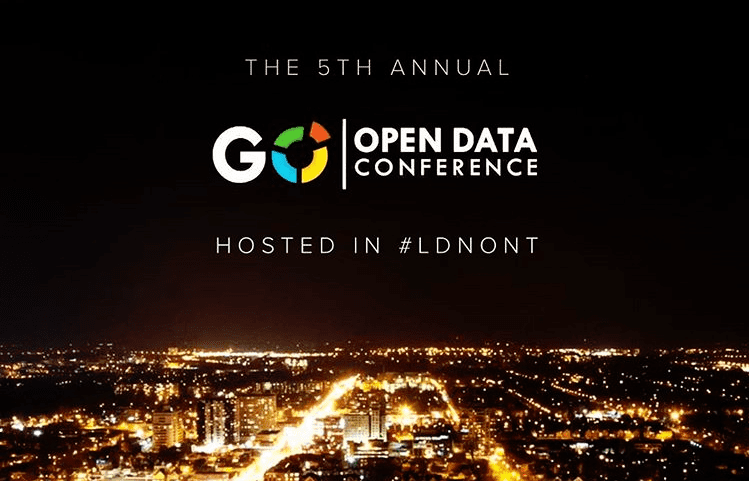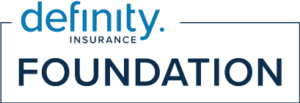
Blog
Highlights from GO Open Data Conference 2017 – Archived Content
Over 150 people gathered in London, Ontario for the Go Open Data 2017 conference May 5 & 6. This was a cross-section of folks from government, the private sector, academia, and the nonprofit sector who all share a common interest in open data. Together, we shared a full day of learning and discussion about the potential and challenges that open data presents. Here are a few of our takeaways.
[button url=”https://storify.com/o_n_n/go-open-data-conference-2017″ target=”_blank” color=”lime” size=”large” border=”false” icon=””]Check out our Storify recap[/button]
Ontario signs on to the International Open Data Charter
The conference began with Liz Sandals, President of the Treasury Board, announcing that Ontario has officially adopted the International Open Data Charter to promote and integrate six open data principles into the workings of government. The official adoption of the Charter is part of the Ontario Government’s commitment to joining the international Open Government Partnership.
Data that serves people
In the keynote panel, attendees were challenged to remember that while there is a lot of potential for open data to help us answer important questions, we need to remember that behind each data point is a person. Tracy Antone, the Director of Health for the Chiefs of Ontario, highlighted the potential of open data to analyze food security as compared to health data of First Nations populations where food prices in some northern remote communities are incredibly high. She also noted the importance of the OCAP principles: Ownership, Control, Access and Possession that inform how First Nations data “should be collected, protected, used, or shared.” Antone highlighted the importance of having strong data governance to ensure that individuals and communities are clear on how data will be used and for what purpose.
Dr. Tracey Lauriault, a professor of Critical Media and Big Data at Carleton University, then built on Antone’s points and posed some provocative questions such as: what data are we not collecting and what are the implications of this? She also reminded us to not to create further barriers between people who speak the language of data and those who don’t. She used the term of “data poverty” to emphasize that open data can in fact create further inequalities if we prioritize the voices of some over others.
In the following two panels, we heard from a number of great speakers. We wanted to highlight a few of the points here:
In the Building the Canada We Envision panel, Ashleigh Weeden from the nonprofit SWIFT Network, spoke of the importance of the rural community and in particular how broadband internet access is crucial to supporting vital innovations in agritech. More connectivity and better sharing of data will help rural communities to create smarter farms and farming practices that will allow Canada to be a leader in providing food to its citizens.
In the Celebrating Open Data in Canada panel, CBC journalist William Wolfe-Wylie talked about the importance of bringing more people into the data conversation. He mentioned how he often gives lectures to journalism students where he asks students what is something they would like to study and then poses the statement, “I wonder if there is data for that” to get the point across that data can be used to uncover and tell stories of important issues in our communities. He noted that journalists can play a role in interpreting and analyzing complex data in order to tell a story that resonates with the general public.
What stuck with us
Ben:
I attended a session from the Treasury Board of Canada Secretariat, which provided a peek behind the curtain into how federal government departments were doing in terms of opening up (or not) their data. The session also touched on initiatives to engage Canadians on which datasets they value and would like to see more of through searching and voting on existing datasets via the Open Data Inventory and suggesting others.
Kate:
I attended the data strategies for the nonprofit sector session where my esteemed colleague joined a power panel alongside Kejo Buchanan of the Open Data Institute Toronto and the IT Division for the Special Library Association and John Griffiths of Goodwill Industries Ontario Great Lakes, moderated by Andi Argast of the Open Data Institute Toronto. The discussion ranged from sector-wide systems thinking to organizational-level tactics– from data literacy in our labour force, to who owns data and the need for data to remain a public asset, to the perils of not having a data strategy for the nonprofit sector.
At the systems level, the session tackled a core conference theme from a nonprofit perspective: how do we ensure data has purpose rather than collecting data for data’s sake? Ben spoke to the need for nonprofits to determine their own outcomes through open and honest conversations with funders (check out our Evaluation work to dive further into this topic!). John built on this point to say that nonprofits need to be grounded in their missions to avoid mission drift in response to funding and funder expectations. He highlighted the need to ask how we can use data to tell stories, build momentum, and engage people in our work. “I don’t love data, I love the mission and the work we do.”
In funder-nonprofit relationships, John also highlighted the need for data standards to ensure common definitions and good data that’s cross platform and not simply funder-specific. Building on these two points, Kejo called for a common language to define outcomes and having funders talk to one another around data standards.
At the ground level, Kejo pointed out that data literacy starts at the organizational level with good practices for collecting and sharing data– from internal communication, to emails, to file storage, to knowledge transfer.
I also attended a session exploring the opportunities the ever growing civic tech movement can offer across sectors– nonprofit, public, and private. Among a discussion of civic tech movements across Ontario, panelists Sharon Kennedy of Civic Tech Toronto, Gabe Sawhney of Code for Canada, Titus Ferguson of UnLondon, and Rob Davidson founder of the Open Data Institute Ottawa addressed one of the themes that had surfaced throughout the day: how data that remains in the public’s hands can be a powerful tool for community building.
Big questions for our sector’s work
We leave you with a few of the big ones to chew on. What do you think? Share your thoughts with us! Tweet at us @o_n_n or post a comment below.
[alert type=”info” close=”false”]
1. How can data be shared and used across sectors to build stronger communities?
2. How do we include more people in conversations around open data?
3. How do we ensure data remains a public asset? (More on this subject here.)
4. How do we make sure data serves our communities so we don’t fall into the trap of data for data’s sake?
[/alert]


